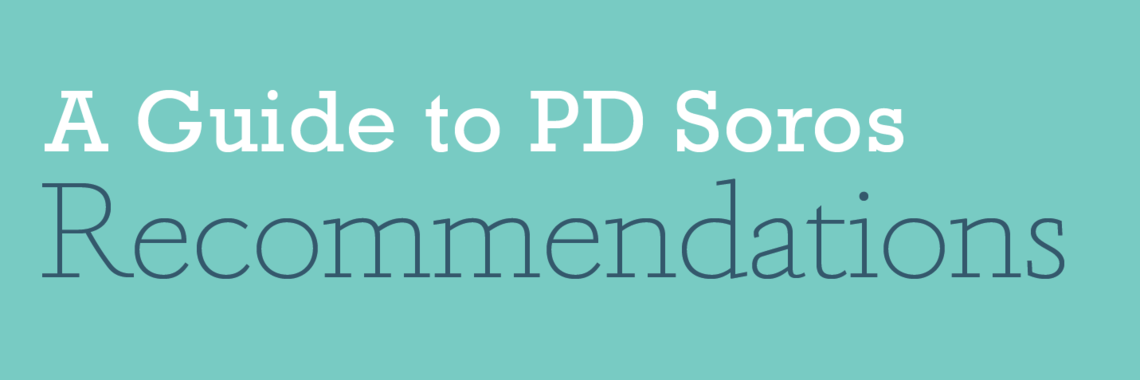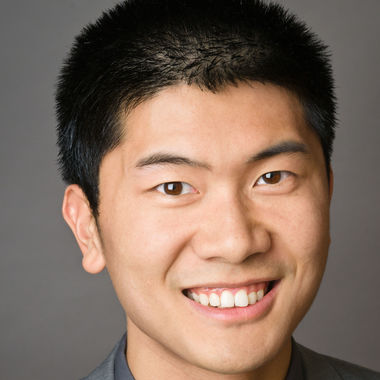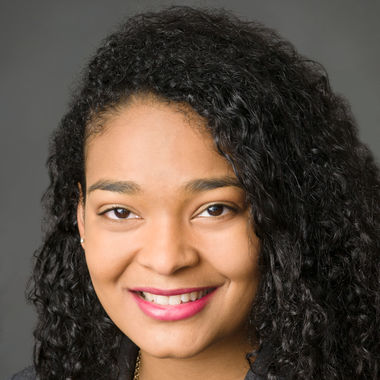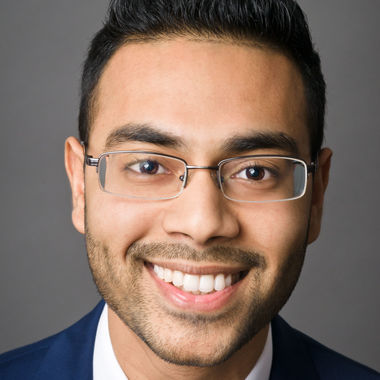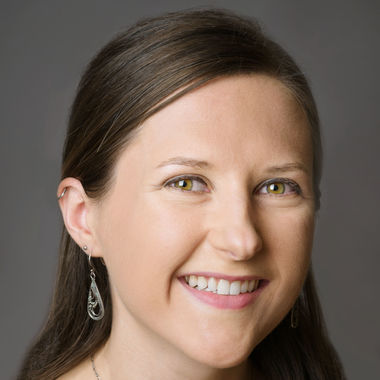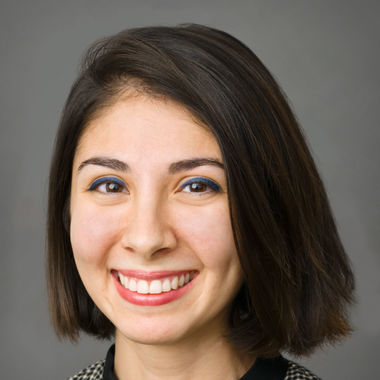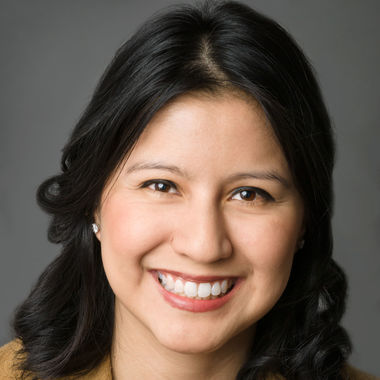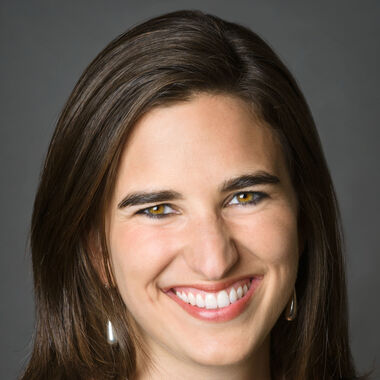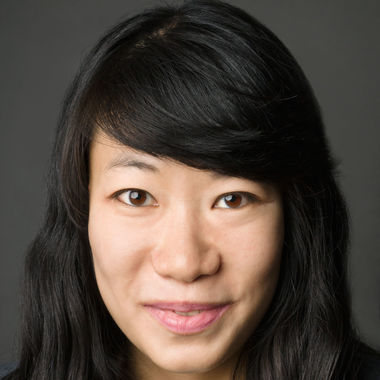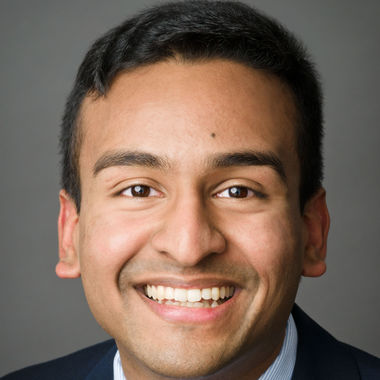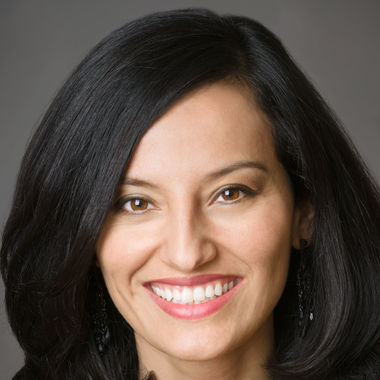P.D. Soros Fellowship for New Americans
If you are an applicant and need to sign into the online application, you can find the link on the "Apply" page of our website: Apply Page.
If you are a fellow looking to login, please note that we are currently updating our backend system for managing Fellow data. In the meantime, to update your information for the Fellowship, please send updates to Nikka Landau at nlandau@pdsoros.org.
PD Soros Recommendations: A Guide for Applicants
Whether you’re thinking of applying or well into your Paul & Daisy Soros Fellowships (PD Soros) application, this guide will help you understand how to put the strongest set of recommendations together to support your application. We’ve include the basic information about recommendations here, and we’ve also asked several 2016 Fellows to provide their own recommendation advice.
One of the reasons why we wanted to put this together is because every applicant has a different set of circumstances and will want to consider different recommenders. This is important to keep in mind as you read through these resources. Find the advice that is right for you. For example, if you are in business, advice for PhD students may not be completely applicable to you. In the same way, if you are a college senior, advice from Fellows several years out of college will be less applicable.
Once you’ve read through the information, it may be helpful to set up a meeting with a mentor, professor, or your undergraduate or graduate school’s fellowship advisor. Fellowship advisors are a great resource—even if it’s been a few years since you were on campus!
Recommendations: The Basics
All applicants are required to submit three recommendations in order for their application to be complete. Applicants have the option of submitting an additional two recommendations for a total of five. The 2016 selected Fellows had an average of four recommendations. Seven of the 2016 Fellows had three recommendations, thirteen of the 2016 Fellows had four recommendations, and ten of the 2016 Fellows had five recommendations. No matter what, your application can not be processed unless it has three recommendations as of the deadline.
The recommendation deadline is the same as the applicant deadline. Applicants should register their recommenders via the online application. Once a recommender is registered in the application they will receive an e-mail with all of the necessary information that they need to submit their application. Sometimes the recommenders e-mail gets caught in the spam box, so the student should check with the professors to make sure they’ve received the link.
Students can share the PD Soros webpage "Guidance for Recommenders" with their recommenders.
Remember, you can submit your application before your recommendations have been submitted—you do not need to wait. After you’ve submitted your application you can continue to sign onto the online application system and check on the statuses of your recommendations. You can also send reminders to your recommenders through the online system.
How We Use Recommendations
Recommendations allow the selection committee to hear from your biggest supporters—the people who know you and your work well and can speak to just how outstanding you truly are. Recommendations serve three primary functions for the selection committee: 1) They validate and highlight your accomplishments, strengths and qualities; 2) they help the selection committee contextualize and understand your strengths and accomplishments in regard to the selection criteria and within your field and among other applicants; and 3) they provide additional perspectives or information that may help the selection committee better understand you in regard to the selection criteria.
It’s up to you as the applicant to figure out who can write you the strongest recommendations and provide the selection committee with the best information.
Re-applicants
If this is not your first time applying to the Fellowships you should still carefully consider who your recommenders are. Read through the Fellows’ advice below and see if your choices still make sense for you.
While many re-applicants use recommenders and recommendations from past years, it’s always helpful to provide an update on recent activities to your recommenders. Note: we can’t transfer recommendations from your past application to your new application—you must ask your recommenders to submit again.
Asking for Recommendations
When you ask your recommenders to write a recommendation for your PD Soros application you can share this "Guidance for Recommenders" webpage with them. That webpage covers technical issues as well. The 2016 Fellows have plenty of tips below about what they asked for from their recommenders.
Advice from Our Fellows
We asked several recent Fellows what advice they had about recommendations for PD Soros applicants. We wanted to know who they asked for recommendations, why they decided on those individuals, and how they went about supporting their recommenders. Here’s what they told us:
Abubakar Abid (2016 Fellow)
PhD in Electrical engineering at Stanford
I applied to PD Soros at the same time that I was applying to PhD programs. All of my recommendations were from professors who had supervised my research in the past. I wanted my recommendations to help the PD Soros committee understand the rigor and level of my research, as well as who I am as a person, thinker, teammate and leader.
One thing that I noticed when getting recommendation letters from professors is that they often like to do their recommendations all at one time. They tend to do recommendations closer to the deadlines. For one of my professors, I wanted to request a letter of recommendation immediately after I stopped working in his lab (which was in January), but he told me to wait until I was actually applying for graduate school or graduate fellowships before asking him. So one thing I would advise is to wait until you have concrete deadlines before approaching professors.
In the same way, professors tend to procrastinate just like students. So if you have already reminded your professors, and they haven't finished your recommendation letter yet, and the deadline is approaching, don't worry too much. They will likely finish the recommendation letter in the last 48 hours. But don’t be afraid to send friendly reminders if need be!
Binbin Chen (2016 Fellow)
MD/PhD in genetics at Stanford
I applied during my second year of graduate school so I asked for letters from both my undergraduate and my graduate school mentors. I asked mentors who I had either conducted research for or who had worked with me on organizing activities. I think PD Soros recommendation letter writers are fairly similar to most graduate school application recommendation writers who know your work and character well. From my experience, instead of someone with big names in the field, the best writer is a person who watched you grow and had meaningful interactions with you. It will be a nice touch if the writer is able to speak to your New American experience and give his or her own perspective about how your experience and accomplishment is extraordinary.
Daily Guerrero (2016 Fellow)
JD at Columbia
I applied as a second year law student and chose my recommenders so that their combined letters would tell the story of my pursuit of a public interest career defending immigrants' rights. My supervisor and another attorney, from my first legal internship in impact litigation, wrote a joint letter discussing my work ethic. My immigration clinic professor spoke directly about my academic and practical experiences in the field I seek to pursue post-graduation. My last letter was from a college professor who I remained close to; he wrote about my leadership experiences with immigrants in college.
Akbar Hossain (2016 Fellow)
JD at UPenn
I spent two years working before law school so I wasn't sure who to approach as recommenders. I knew that it was important for my letter writers to be people who knew me really well and could speak authentically about my story and my passions. I also wanted to submit the maximum letters allowed. I figured you can't really go wrong with that so long as every letter provides an excellent recommendation and provides the committee with a slightly different perspective.
While some candidates are highly specialized in their respective fields, I wanted the committee to see the wide breadth of my work as a law school student. To ensure that my recommenders did not write the same things, I drafted request letters for every recommender, highlighting specific topics for them and informing them what I've asked others to focus on. This is not telling them what to write, but to let them know what the focus is for other writers.
I applied during my first year of law school. There was an urge to ask someone from the law school to write on my behalf, but after much consideration, I came to conclusion that no one at the law school (over two months) knew me as well as people from my undergraduate school. In the end I had two undergraduate professors who knew my academic work really well, an undergraduate student dean who knew my extracurricular involvement well, my supervisor from my most recent job and then the president of the college I attended who knew me well as a person. In the end, I felt that these letters covered my academic interests and performance, my leadership abilities, work ethic, passion and interests, my ambitions and potential, and my character as a person.
Ania Jaroszewicz (2016 Fellow)
PhD in behavioral economics at Carnegie Mellon
The ideal situation, as far as I know, is to receive letters of recommendation from advisors, mentors, or superiors who, as a set, (a) know you, your work, and your goals very well; and (b) can speak to various aspects of your life, such as your research abilities or your professional skills. Consider recommenders who might complement one another in these aspects--e.g., one who knows your recent research very well but has not known you for very long, coupled with one who can speak to your professional skills and personality when you worked together a few years ago.
I had four recommendations in total. Three were from professors at my graduate university and one was from a former employer.
Leen Katrib (2016 Fellow)
MArch at Princeton
I had a total of five recommendations. I tried to be strategic about who would best be able to emphasize who I am as an applicant. I wanted to highlight my work as a student, independent researcher, writer, academic, and as a practicing architect. Here is who wrote my recommendations:
- My thesis advisor who could speak to my design skills.
- My former studio professor whose class has heavily influenced the direction of my independent research.
- My former history and theory professor who was able to comment on my writing & critical thinking.
- A professor with whom I worked who was able to highlight my involvement in an academic setting beyond the role of a student.
- My former boss at my first job out of college.
I contacted my recommenders early in the summer to check if they were comfortable writing my recommendations. I sent them a first draft of my complete application package by mid-August to get their input and to help them get a better sense of my application. I found it really helpful to communicate with them as early as possible. They all had different input, which ultimately helped me put together a strong application.
Denisse Rojas Marquez (2016 Fellow)
MD at Icahn School of Medicine at Mount Sinai
I re-applied to PD Soros when I was a first-year MD student (I applied for the first time when I was a medical school applicant). I had three years of work experience between college and medical school so I only had one undergraduate recommendation. I requested letters from the dean of admissions at my medical school who knew me well from the application cycle, a medical school administrator at a different medical school who I had collaborated with through my job at Pre-Health Dreamers, the director of a research program I participated in at my undergraduate campus, and my former supervisor at Pre-Health Dreamers.
I wanted a diverse group of recommenders who could highlight my various strengths, my work to improve healthcare access for immigrants, access to medical school education for undocumented students, and my career aspirations. I kept in touch with each recommender over the years so that was helpful for them to be up-to-date with my activities. I gave each recommender bullet points on what the PD Soros Fellowship is looking for and suggestions about things they could discuss and anything I wanted them to highlight in particular. I also gave recommenders anything they asked for (i.e. someone asked for a detailed list of my activities for the previous year). The important thing is to give recommenders plenty of time to write the letter and have good communication with them about what they need to write you an outstanding letter (i.e. resume, transcripts, PD Soros essay drafts, sample work).
Jenna Nicholas (2016 Fellow)
MBA at Stanford
I applied to PD Soros when I was a first-year MBA student. As someone in business, I wanted the PD Soros committee to hear from people who could speak to my past work both inside and outside of the classroom. That being said, since I had been running my own business for the previous few years, I didn’t have a supervisor or manager, so instead I asked people who I have worked with in the past who knew me well and were well respected in my field, impact investing. I had recommendations from an undergraduate professor, a colleague, and a leader in the impact investing sector.
Stephanie Speirs (2015 Fellow)
MBA at MIT Sloan
I was seven years out of college when I applied to PD Soros. It had been a long time since I had connected with academic mentors, and I believed my professional colleagues could speak to my latest pursuits with more conviction. I wanted to highlight the real world lessons that facilitated my reentry to school. I had a total of three recommendations, and they came from two supervisors and an advisor with whom I had worked in the past.
Vishwajith Sridharan (2016 Fellow)
MD/MBA at MIT and Harvard
The best letters always come from those who know you best—plain and simple. For example, one of my letters came from my creative writing professor from my undergraduate studies. She was the one with whom I would share my academic pursuits, my struggles in the lab, my family gossip, and so much more. The best recommendation letters breathe life into resumes, and make you more than the sum of your accomplishments.
Heidi Vuletich (2016 Fellow)
PhD in psychology at UNC
As a PhD student, I knew it was important to have my two graduate advisors write a recommendation for me. My advisors were able to speak to my strengths as a researcher, my potential within the field, and my creativity in forging my own path as a dual-program student. Beyond my advisors, I asked a professor who knew me from several settings. I had been in one of his classes, and I had also collaborated with him on a research project. I felt that he would be able to give the Fellowships a broader perspective of who I was as a thinker, peer, and collaborator. Finally, I asked one of my undergraduate professors, who had supervised my honor's thesis project. She was very familiar with my new American story and how that shaped who I was as a scholar. She had witnessed my sustained effort in navigating an educational system that was new to me and my family, but she had also seen the ease and passion with which I engaged scientific questions. I knew she would be able to discuss who I was as a researcher in the context of my personal background.
In total, I had four recommendations. While there is an option to submit five, I felt that these four painted a full picture of me. Plus, while it would have been nice to have five, I think the important thing is that all of your recommendations are strong.
© 2024
